Working his way up through the party ranks, Mikhail Gorbachev rose to the very top of the Soviet Union, and eventually became its leader in 1985.
Unbeknown to all, and especially him, he would be its last leader.
By the time Gorbachev came to power, the USSR was on its knees. Run increasingly by doddery old men who had no clue what was going on, “Gorby” was a breath of fresh air.
Margaret Thatcher cautiously, yet famously, said that Gorbachev was a man we could do business with. This was unheard of at the time.
I have read countless books on Gorbachev over the past 25 years. I am a fan – initially a huge fan – but I have cooled off somewhat the more I learned.
That said, overall, I still to this day admire him, and always will.
Gorbachev and the break-up of the mighty USSR is a hugely complicated topic.
Volumes of books have been written on it. But it can be summed up thus. Gorbachev tried to modernise its broken political system and decentralise its stagnated centrally controlled economy.
When I first visited Russia in 1993, it was still a shambles, it seemed nothing worked, apart from the stunning Moscow Metro which ran to time that would put the London Underground to shame.
Very few ordinary folks had a clue how to adapt to the new post state-controlled world Russia found itself in, apart from the criminals that is, who made an absolute fortune.
It is, though, a mistaken belief that Gorbachev wanted to dismantle the USSR. He did not, he was a committed communist and a party man. He wanted to reform it. He believed he could, he wanted it to survive.
He tried with policies such as glasnost (openness) and perestroika (restructuring), but ultimately, reforming the USSR was near impossible, no one could have achieved it.
The entire system was haemorrhaging, on life support. They may have had a huge arsenal of nuclear weapons, but they couldn’t even feed their own people in the ’80s. I have numerous Russian friends who stood in the nuclear superpower USSR and queued for hours to buy bread or sausages.
He allowed, for the first time in decades, freedom of expression, political discussion and accepted criticism from the press. He withdrew his troops from the disaster that was Afghanistan, and signed deals with the west to destroy huge piles of nuclear weapons.
The world has a lot to be thankful to him for.
However, after a few tumultuous years in the late ’80s, which even saw Gorbachev kidnapped by communist hardliners and kept under house arrest, Boris Yeltsin rose to power in Moscow, bringing in huge changes.
Gorbachev was politically sidelined. Power was broken up as former republics gained their voices and Gorbachev reluctantly resigned on Christmas Day 1991. The same day that the USSR ceased to exist.
It was Yeltsin who really dismantled the USSR, not Gorbachev.
Earlier, in 1987, US President Ronald Regan stood in the western sector close to the Berlin Wall and gave what – to me anyway – was and remains one the most powerful speeches ever made.
“…There is one sign the Soviets can make that would be unmistakable, that would advance dramatically the cause of freedom and peace. General Secretary Gorbachev, if you seek peace, if you seek prosperity for the Soviet Union and Eastern Europe, if you seek liberalisation: come here to this gate! Mr Gorbachev, open this gate! Mr Gorbachev, tear down this wall!”
And in reality, Gorbachev did just that. Not by ordering it to be knocked down of course, but by supporting reform and not backing to the hilt the East Germans anymore.
This to me was his greatest achievement. For by not backing that sickening regime any longer, it did ultimately lead to the dismantling of the appalling Berlin Wall.
For that and that alone, Gorbachev deserves all our praise. It simply would not have happened without him.
Yes, Thatcher and Reagan deserve much praise for the steadfast way they stood up to the USSR, but the end of the Cold War would not have happened in the relativity peaceful way it did if Gorbachev had not done what he did.
If he had continued to back the East Germans, especially offering brute force, that regime may well have hung on for a few years more, and no doubt blood would have spilled in Berlin.
But it is a mistake to assume that the Soviet bloc fell without bloodshed.
While he was happy to encourage reform in such countries as East Germany and Ceausescu’s Romania, he wasn’t so keen on the Baltic soviet states doing the same. Remember, he did not want to break up the USSR, of which the Baltics were full members.
In Lithuania, he tired to stop pro-independence movements by sending in Soviet troops in January 1991. They took over government buildings and crushed all dissent.
Hundreds of innocent protesters were injured and 14 killed. Tens of thousands took to the streets and the Soviets eventually stood down. This was probably the end of Gorbachev.
At the end of the day, he helped free countless millions from decades of isolation and gave them their first taste of freedom. Yet you’d be mistaken for thinking that Gorbachev gets credit for that in Russia.
The sad reality is, Gorbachev is not liked in Russia today. Actually, he is despised by many. He is seen as the man who gave away their precious Soviet empire. An “empire” that by that time was economically and morally bankrupt. People forget that, and today’s youth can’t even remember it.
You see, everything that is wrong with Russia today is the fault of someone else. Usually the west, and probably Gorbachev too. No one does propaganda like today’s Kremlin.
The official reports on his recent death in Russia, while praising him as an “international statesman”, pretty much stopped there, apart from going on to criticise him for being too close to the west.
In later years Gorbachev spoke out against Mr Putin on many occasions. That said, he was pro the Kremlin annexation of Crimea in 2014. That surprised and disappointed me. But at least he was against the invasion of mainland Ukraine earlier this year.
He must have been devastated at what he’s seen over the past six months in Ukraine.
Putin did not attend Gorbachev’s funeral. A huge mark of disrespect in my view. But no surprise.
History will no doubt judge Gorbachev’s leadership in a far greater humanitarian light than it ever will Putin’s.
Maybe one day the Russian people will get it. But that won’t happen for a very long time. If ever.
For his efforts in reform and for helping free Soviet-dominated eastern Europe and therefore his contribution to world peace, Gorbachev was awarded the Nobel Peace Prize in 1990.
However, and I say this with a heavy heart, Gorbachev ultimately failed to transform Russia and the way it was governed. Just take a look at it today. Russia has evolved backwards at an alarming rate and is once again a totalitarian state cut off from the civilised world.
No western policy has done that, no NATO policy. Even the Ukraine war and sanctions didn’t all of a sudden do that.
It’s the regressive policies of the Kremlin over the past 10 years that has done that.
RIP Gorby, I for one thank you for what you, against all odds, attempted to do.
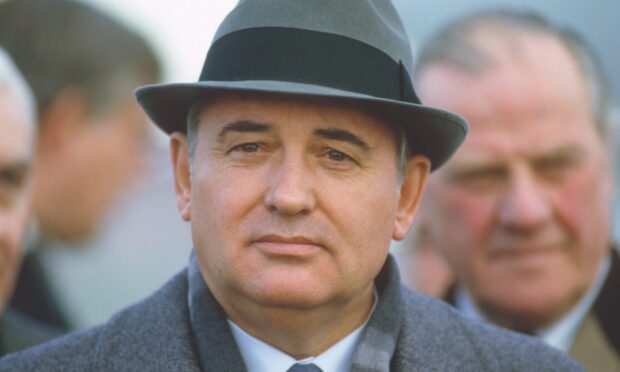


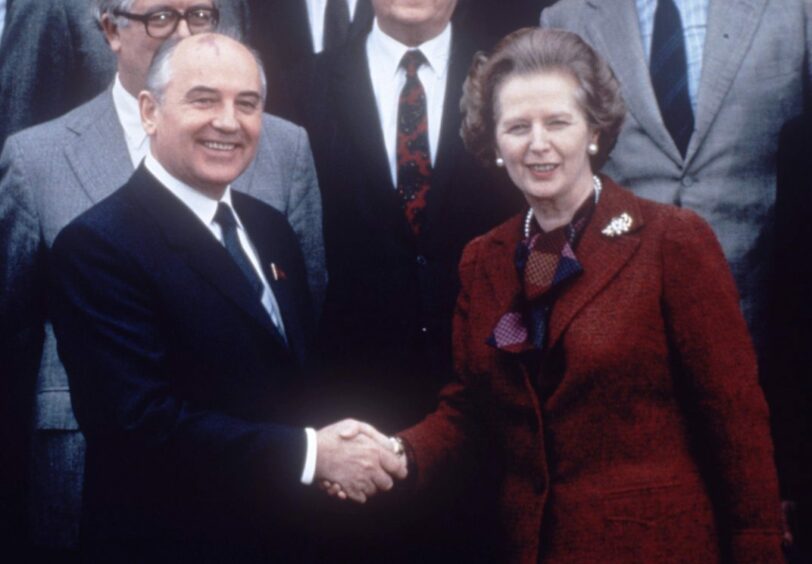
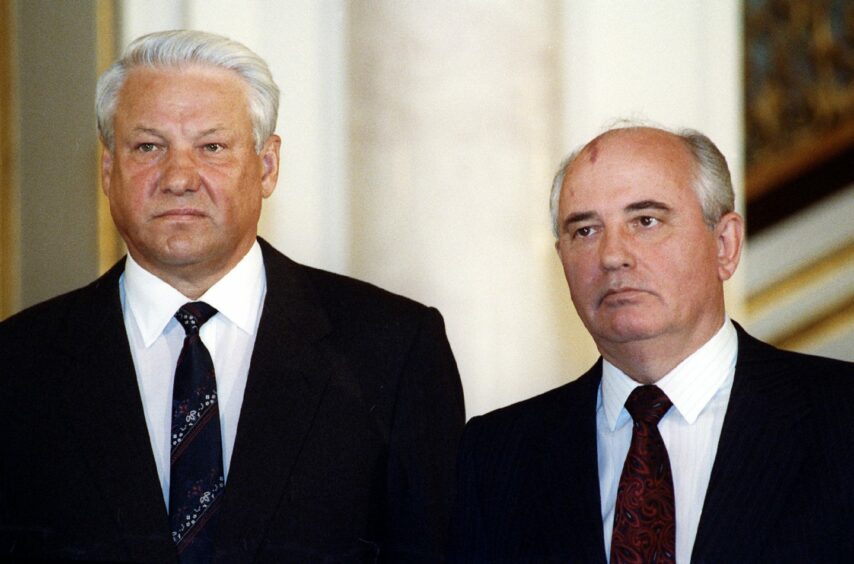
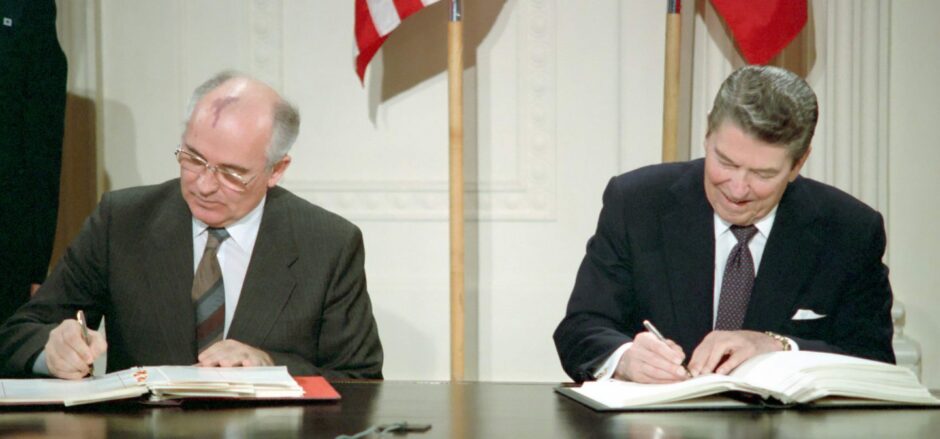
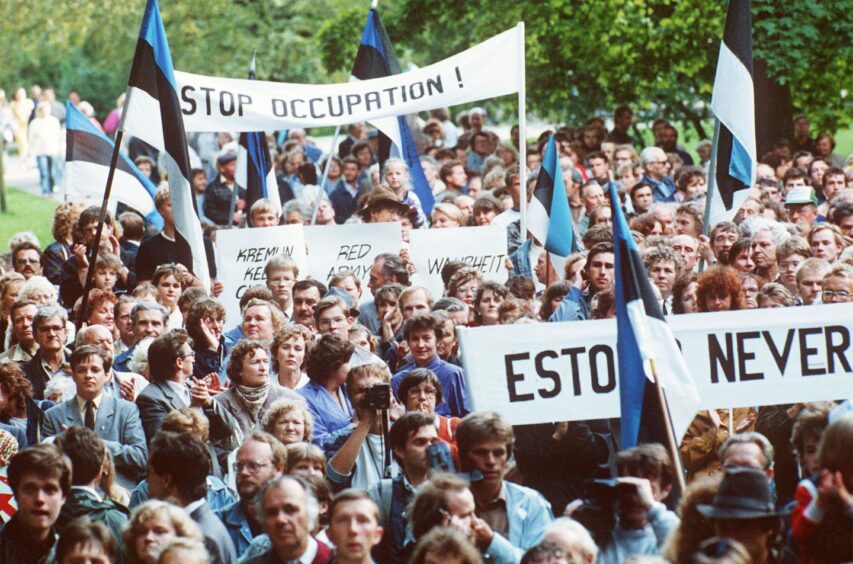
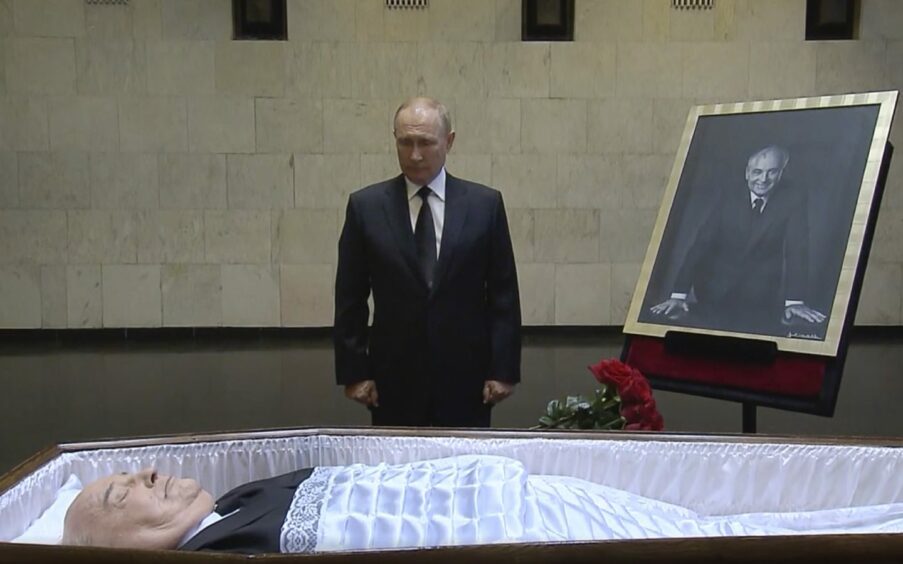

Conversation